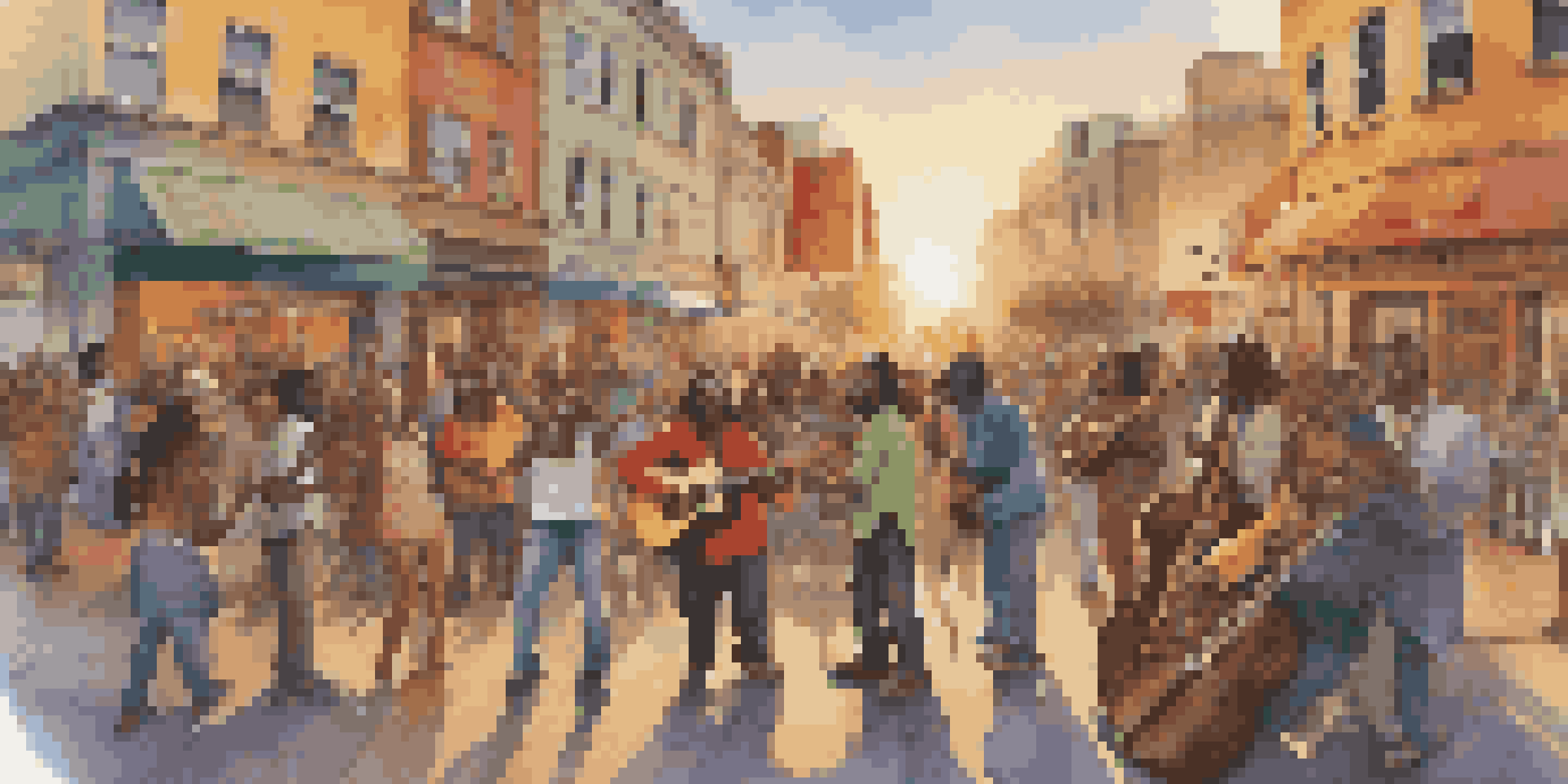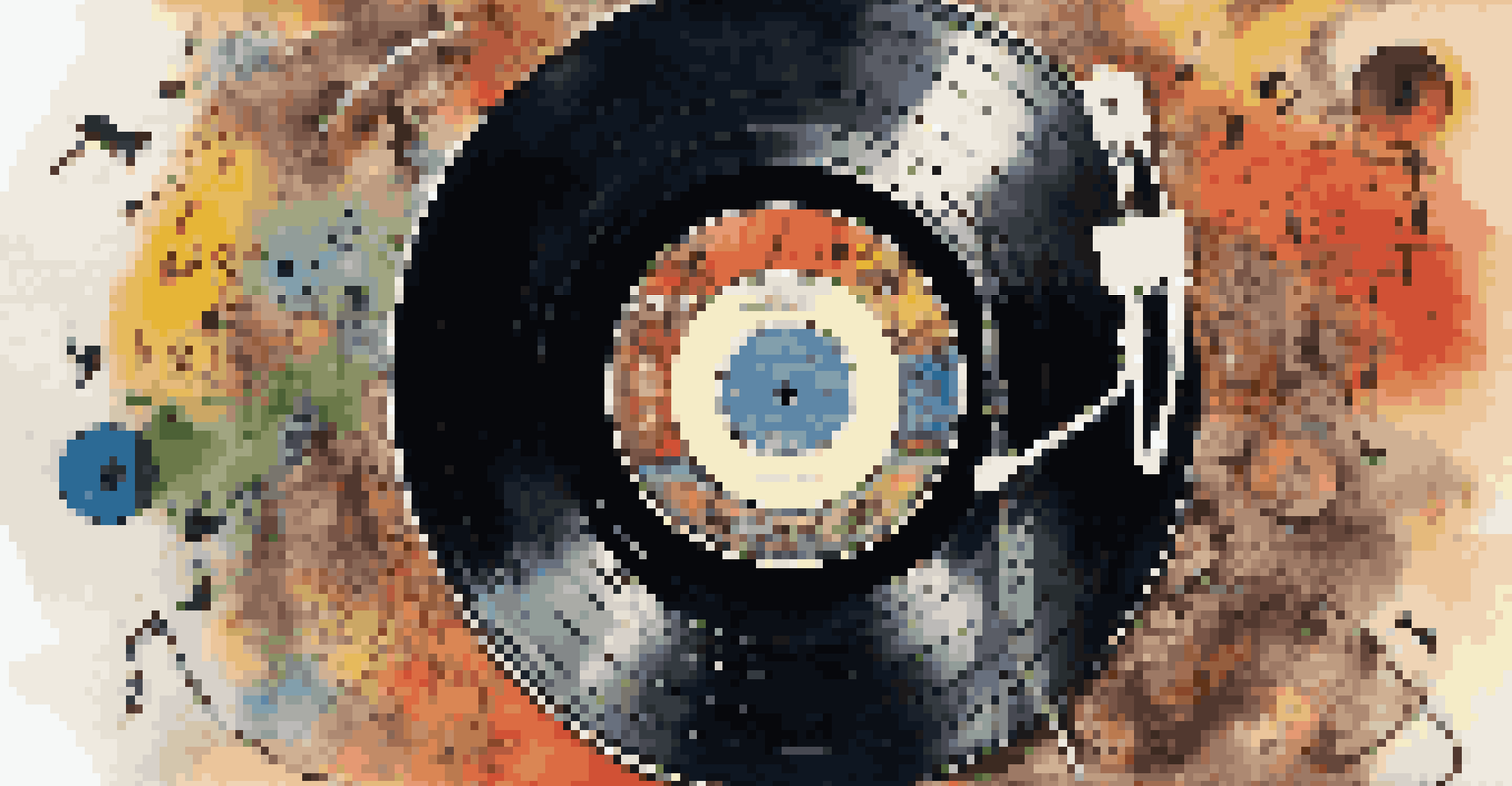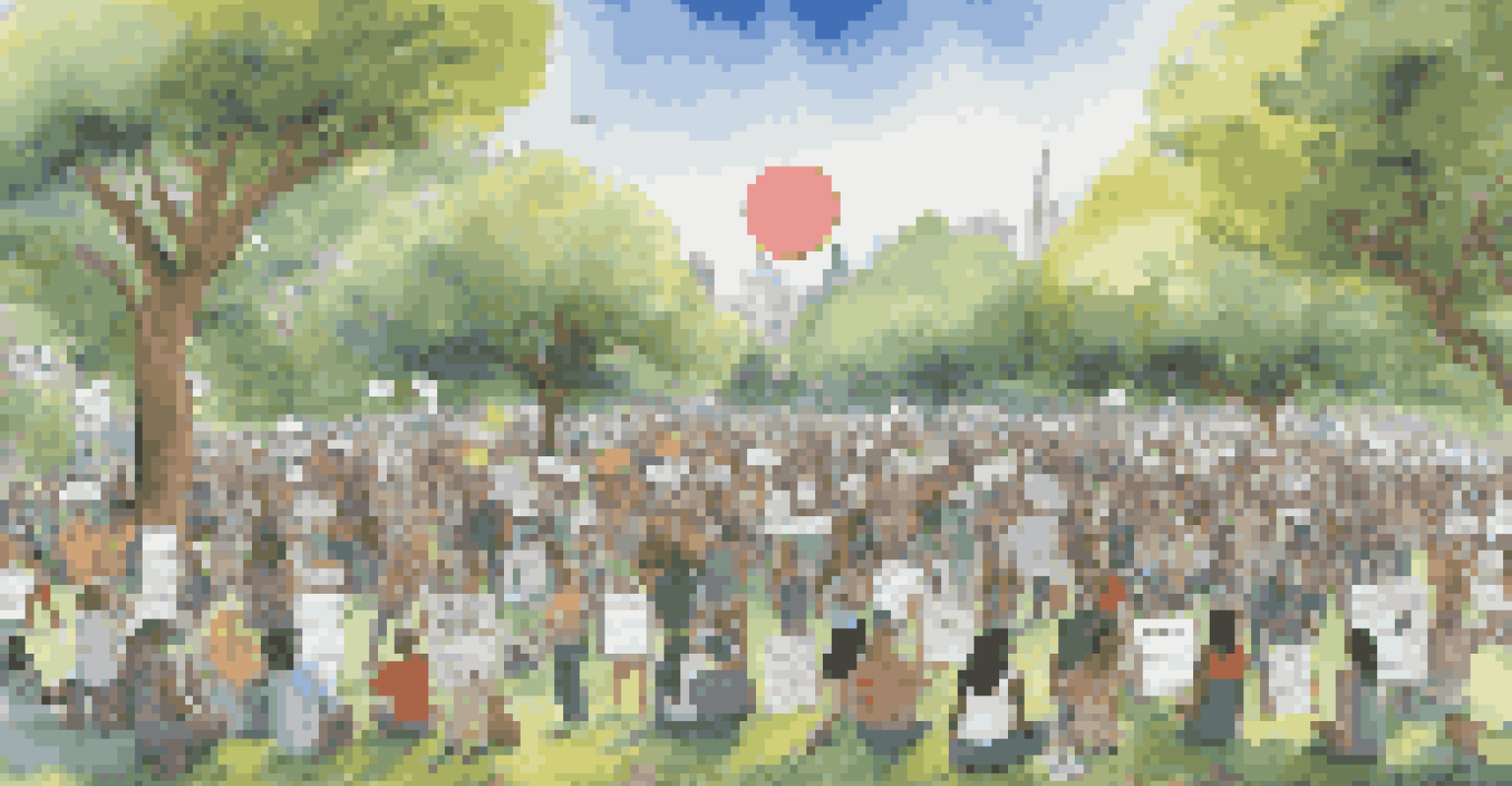The Relationship Between Music and Political Expression in Genres

The Historical Link Between Music and Politics
Throughout history, music has served as a powerful tool for political expression. From the revolutionary anthems of the French Revolution to the protest songs of the 1960s in the United States, music has often reflected the social and political climates of its time.
Music can change the world because it can change people.
Artists like Bob Dylan and Joan Baez used their music to challenge societal norms and inspire movements. Their songs became rallying cries for civil rights, illustrating how melodies can transcend mere entertainment and evoke change.
In this way, music not only captures the spirit of its era but also shapes public opinion, demonstrating its profound relationship with politics.
How Genres Reflect Political Ideologies
Different music genres often embody distinct political ideologies. For instance, punk rock has roots in anti-establishment sentiments, with bands like The Clash and Sex Pistols vocalizing their dissent against societal norms.

Conversely, genres like country music often express traditional values and conservative viewpoints, reflecting the culture and beliefs of their listeners. This dichotomy shows how music can serve as a mirror to the political landscape.
Music as Political Expression
Throughout history, music has been a powerful tool for political expression, reflecting and shaping social movements.
Understanding these connections helps us appreciate how artists use their platforms to either challenge or reinforce existing ideologies.
The Role of Hip-Hop in Social Activism
Hip-hop has emerged as a formidable voice for social activism, addressing issues like racism, police brutality, and inequality. Artists such as Kendrick Lamar and Public Enemy have effectively used their lyrics to comment on systemic injustices.
The power of music is the power to unite people, to speak for those who cannot speak for themselves.
By weaving personal narratives with broader societal critiques, hip-hop artists create a space for dialogue and awareness. Their music resonates with listeners who may feel marginalized or unheard, sparking movements for change.
This genre's ability to articulate the struggles of a community highlights the power of music as a catalyst for political expression.
Pop Music: The Duality of Entertainment and Message
While pop music is often seen as purely entertaining, many artists infuse their work with political messages. For example, songs like Lady Gaga's 'Born This Way' promote acceptance and equality, blending catchy hooks with important themes.
This duality allows pop musicians to reach a wide audience, making political messages more accessible. They can inspire listeners to engage with issues they might not have considered before.
Genres Reflect Ideologies
Different music genres often embody distinct political ideologies, serving as a mirror to the political landscape.
Thus, pop music can be both a source of fun and a platform for significant social commentary, bridging the gap between entertainment and activism.
Folk Music: A Storytelling Tradition of Resistance
Folk music has long been associated with storytelling and the sharing of cultural narratives. Artists like Woody Guthrie and Pete Seeger have used this genre to share stories of struggle and resistance, often focusing on the common person's experience.
Through their lyrics, folk musicians create a sense of community among listeners, fostering solidarity in the face of adversity. This tradition of storytelling serves to share historical context and inspire action.
Folk music exemplifies how personal stories can resonate on a larger scale, connecting individuals to broader political movements.
Reggae: A Genre Rooted in Social Justice
Reggae music, particularly through artists like Bob Marley, has become synonymous with messages of peace, love, and social justice. Originating from Jamaica, reggae often addresses issues like poverty, oppression, and resistance.
Marley's songs, such as 'Get Up, Stand Up,' encourage listeners to stand against injustice, making reggae a global voice for social change. Its rhythms and melodies create an inviting atmosphere for discussing serious topics.
Hip-Hop Drives Social Change
Hip-hop has emerged as a formidable voice for social activism, addressing critical issues and sparking dialogue.
Thus, reggae showcases how music can unite people across different cultures in the fight for equality and justice.
The Evolution of Music as a Political Tool
As technology has evolved, so too has the way music is used as a political tool. Social media platforms enable artists to share their messages instantly, reaching audiences far beyond traditional radio and concerts.
This accessibility has led to new movements, where songs become viral sensations, amplifying political messages and mobilizing activism. For instance, songs associated with the Black Lives Matter movement have gained traction through online sharing.

The evolution of music as a political tool demonstrates its adaptability and enduring relevance in shaping political discourse.
The Future of Music and Political Expression
Looking ahead, the relationship between music and political expression will likely continue to evolve. With ongoing social issues and movements, artists will find new ways to use their platforms for advocacy.
As genres blend and new styles emerge, the potential for innovative political messages within music remains vast. This evolution will keep music at the forefront of cultural and political conversations.
Ultimately, the future of music as a form of political expression promises to be dynamic, reflecting the changing landscape of society and the voices within it.